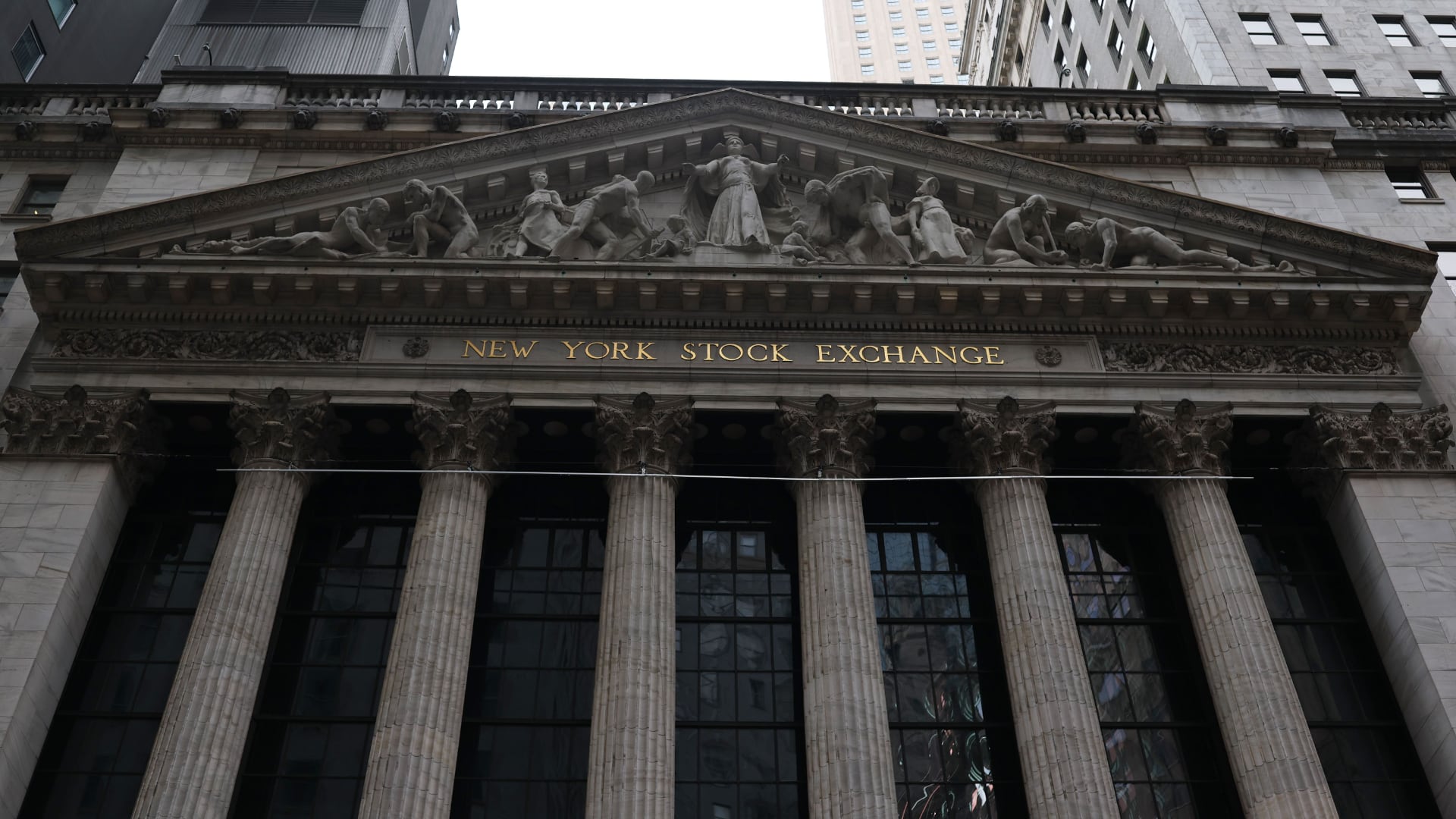By Stan Choe and Damian J. Troise
The Federal Reserve did what it could to help financial markets and the economy Monday. But investors are still waiting for Congress and the White House to do the same.
Stocks are down nearly 5 percent in volatile trading on Wall Street as investors wait for Democrats and Republicans to settle their differences and pass a nearly $2 trillion rescue package for the economy. Earlier, U.S. stock futures and European stocks got a bump higher following the Fed's latest massive, surprise announcement of support, but the gains quickly vanished.
With Monday's losses, the stock market has lost more than a third of its value since its record last month, as more businesses shut down in hopes of slowing the spread of the coronavirus. Economists increasingly say a recession seems inevitable, and no one can say for sure how deep it will be or how long it will last.
Markets are likely to remain incredibly volatile as long as the number of new infections accelerates. Until then, investors are looking for both central banks and governments to do their parts to support the economy.
The Fed came through Monday, saying it would buy as many Treasurys and mortgage-backed securities as it takes to stabilize bond markets. It goes way beyond the $700 billion in purchases it announced last week, which economists called a "bazooka" of support. It also said it will buy corporate bonds and other investments to help improve trading in markets, which have been thrown into mayhem amid a rush for cash.
Investors are rushing to sell what they can to raise cash, which has caused prices for even high-quality bonds to fall and trading to get snarled. The Fed's efforts are aimed at helping those markets.
1"This is excellent, comprehensive, covering many areas of the financial markets, their function, the flow of credit — this is exactly what was needed,'' said Donald Kohn, former Fed vice chair and now a senior fellow at the Brookings Institution. "The Fed has hit it out of the park as far as I'm concerned.''
"The key issue now is getting the fiscal response straight,'' said Kohn, saying that Congress needs to finance a stabilization fund to back up the Fed's efforts.
Congress debated through the weekend on a rescue plan for the economy that was nearing $2 trillion. But top White House officials and congressional leaders are struggling to finalize it.
"The Fed is only important to the extent that it keeps the markets running smoothly," said Chris Zaccarelli, chief investment officer for Independent Advisor Alliance. "It's completely up to the federal government, and I mean Congress and the executive branch, at this point."
Talks are set to resume after Democrats derailed the plan Sunday night. They argued it too heavily favored corporations and did too little for workers and health care providers. Still, optimism remains that they'll get to a compromise.
"If the alternative is crashing the plane, then you'll do everything you can to not crash the plane," said Thomas Martin, senior portfolio manager at Globalt. "Ultimately the government will get there."
1The S&P 500 was down 4.9 percent, as of 11:45 a.m. Eastern time in another day of sudden swings. It had shaved its loss down to just 0.4 percent earlier in the morning.
1The Dow Jones Industrial Average fell 946 points or 4.9 percent to 18,227. The Nasdaq was down 3.5 percent after earlier being up 0.8 percent.
Lockdowns and closures intended to halt the spread of the new coronavirus expanded over the weekend to include many cities around the world and the number of people infected surged past 336,000. All the moves help slow the spread of the virus, but they also sap away more revenue from businesses big and small.
A sharp surge in cases and in deaths across the region, especially in Southeast Asia, has also raised the level of alarm.
Ultimately, investors say they need to see the number of new infections stop accelerating for the market to end its prolonged, bouncing tumble.
Investors have continued to seek safety in U.S. government bonds, driving their yields broadly lower. The 10-year Treasury yield, which influences interest rates on mortgages and other consumer loans, slid to 0.70 percent Monday from 0.94 percent late Friday.
Many investors are waiting for markets to fall further before plunging back in, said Naeem Aslam of Avatrade.
Should the market drop by another 10 percent to 20 percent, the overall decline from recent peaks would be over 50 percent, and "that would be a massive buy signal," Aslam said.
More than 14,400 people have died of the coronavirus worldwide, while nearly 100,000 people have recovered.
For most people, the coronavirus causes only mild or moderate symptoms, such as fever and cough, and those with mild illness recover in about two weeks. Severe illness including pneumonia can occur, especially in the elderly and people with existing health problems, and recovery could take six weeks in such cases.
Trading on the New York Stock Exchange went all-electronic for the first time Monday after the exchange temporarily closed its trading floor as a precaution. The exchange announced the move last week after two employees tested positive for the virus. The number of floor traders had dwindled sharply in recent years as more trading become electronic.
___
AP Economics Writer Paul Wiseman and AP Business Writer Elaine Kurtenbach contributed.













